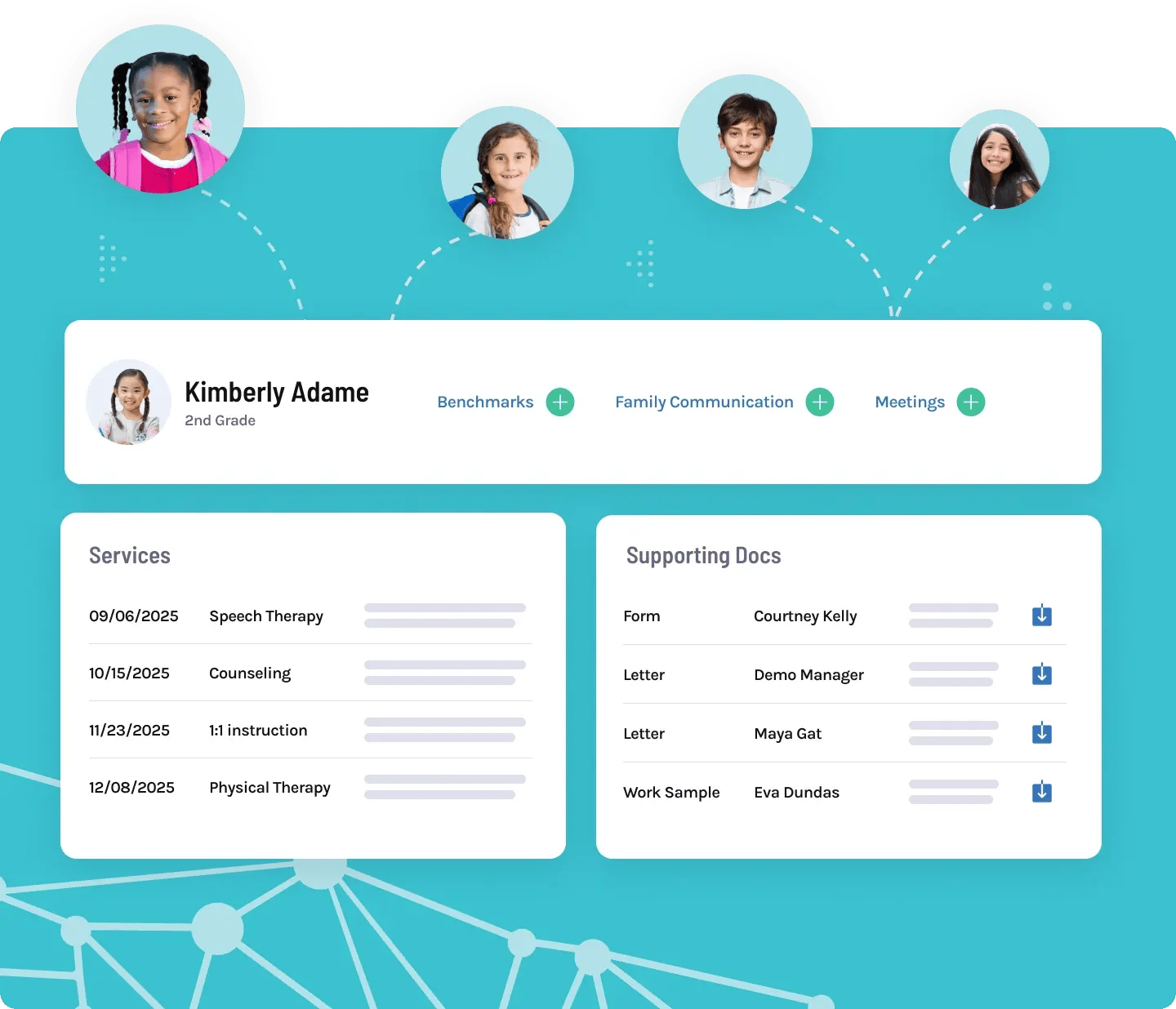Just as a pilot uses their dashboard, a farmer measures rainwater, or a nurse checks vitals, data in MTSS is a tool meant to be used for more than determining final success or failure. Data is a helpful guide in real time.
Progress monitoring data provides educators with the insight they need to adjust courses throughout the year and make the best use of their valuable time and resources to support students. And, school leaders play a crucial role in guiding staff with data analysis.
Progress Monitoring Data: Key Takeaways
- Create a positive, collaborative culture around data.
- Use a clear, consistent system to review and act on progress data.
- Look at fidelity and root causes before escalating support.
Here are four things that great school leaders do to set up their teams for success with progress monitoring.
#1. They Create a Positive Culture Around Data Conversations
The data is what it is, so approaching the conversation as a collaborative problem-solving process — rather than a time for blame and shame — is crucial to getting teams to do their best work. Great leaders model positive intent, assuming everyone cares about student progress, and allow the data to inform collective work. Where the data highlights problems, focus on solutions, and where the data highlights success, celebrate and use that momentum towards problem-solving in other areas.
Related Resource: MTSS Meetings Guide and Toolkit
#2. They Establish a Structured Monitoring System
It’s not just about what data you collect, but what you DO with the data you collect. Effective data leaders have a structured plan for:
- Who will review the data?
- When, where, and how the data be reviewed?
- What actions will result?
Providing protocols and procedures for when to change, intensify, or exit interventions ensures clarity and consistency for staff, parents, and students.
Related Resource: MTSS Intervention Flowchart
#3. They Encourage Examination of Intervention Fidelity
Make it normal to have someone putting eyes on what's happening during intervention time. Maybe the intervention is happening, but there are missing components, or student behavior is a problem. Provide teachers with opportunities to observe one another. There are so many benefits to the feedback loop created when colleagues and leaders spend time observing instruction and looking for specific fidelity markers. Witnessing the intervention in real-time provides insights into the “why” of outcomes seen in the data and helps produce quality solutions during planning meetings. Read more about Fidelity Monitoring
#4. They Prioritize Root Cause Analysis Over Immediate Tier Escalation
While educators need intense help, great leaders resist the urge to make tier escalation an automatic response. Great leaders look for trends in the data to see what is and isn’t working and why. Root cause analysis ensures the best possible intervention for all students. Although this approach takes time and skill up front, it will actually save time and sanity in the long run. Resources are not unlimited, and teachers need analysis that focuses on intensive help at the point where it is needed.
Related Resource: How to Know if an Intervention Plan is Successful
Lead Your Team to Intervention Success
When leaders create the conditions for collaboration around data analysis, teachers have the support and information they need to help each student reach their goals. They see the continuous improvement process in action, which builds collective efficacy and amplifies their efforts far beyond what any individual can do on their own.
The MTSS 6-Week Intervention Check-In
After six weeks of intervention, teams need to decide what’s working and what’s not. This session shows how to use progress monitoring data, including rate of improvement and fidelity, to determine whether to continue, adjust, or intensify support.
Watch below to learn how to turn intervention data into clear next steps.

About the author
Larissa Napolitan
Larissa Napolitan is the Content Marketing Manager at Branching Minds and host of the Schoolin’ Around podcast, where she spotlights innovative voices and practices shaping education today. A former middle school teacher and instructional coach, Larissa draws on her classroom experience to create meaningful content that connects research, storytelling, and practical insights for school and district leaders. She is passionate about amplifying educator voices and supporting the growth of all students.

MTSS Shouldn't Be So Hard
Empower your team with actionable insights that drive success for your students, staff, and school(s).












.png?width=1436&height=956&name=Facilitate%20Progress%20Monitoring%20(Preview).png)

%20(1).png?width=1000&height=500&name=A%20Guide%20to%20Self-Assessment%20of%20MTSS%20Implementation%20(preview)%20(1).png)

.png?width=716&height=522&name=Top%205%20MTSS%20Implementation%20Tips%20for%20School%20and%20District%20Leaders%20Foundational%20Reading%20Skills%20in%20MTSS%20(preview).png)
.png?width=716&height=522&name=The%20Power%20of%20Good%20Data%20(blog).png)
.jpg?width=716&height=522&name=Summer-MTSS(preview).jpg)